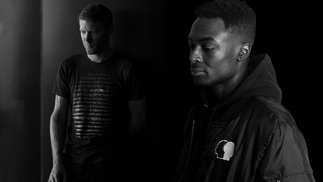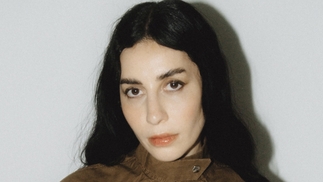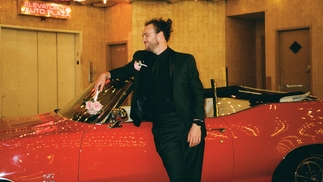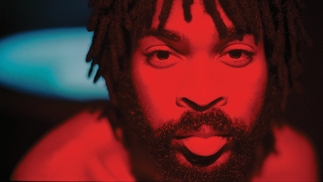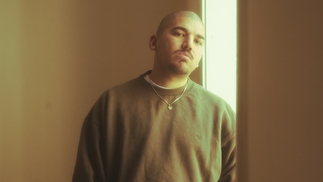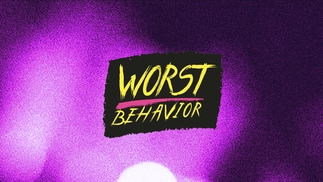Recognise: A.Fruit
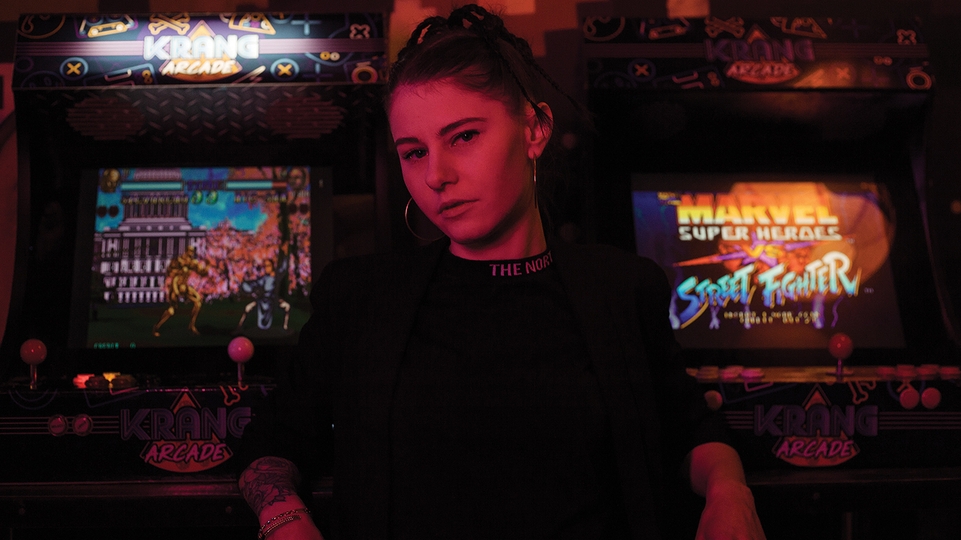
Saint Petersburg’s rising star in jungle, footwork and hybrid bass music, A.Fruit, records a 100% productions mix for the Recognise series, and chats to Kamila Rymajdo about her technical approach to making music, speaking out against political oppression, and creating DJ opportunities for women in her local scene
A.Fruit — first name, Anna — discovered jungle when she was 14, while spending the summer in her grandparents’ village 50 kilometres outside Moscow. It was the early 2000s, and she passed the time cruising around neighbouring towns with her older cousin and her friends, listening to music in the car. “It was something just so new to me, I’d never heard anything like that before,” she says. “I was like, ‘Oh my God, what is that?’”
It took a while to work out that the track was ‘Style From The Darkside’ by Aphrodite, because it was just on an unmarked CD of tunes downloaded from someone’s computer. When she returned to her parents’ home in Moscow, Anna immediately went to a bazaar to speak to the music vendors there. “They found the album and I bought it, and then a week after I returned and asked for something similar,” Anna says over Zoom from Saint Petersburg, where she now lives.
But Anna was also into other genres. Like most people growing up after the fall of the Iron Curtain, she was captivated by pop culture flooding the market from the West. “I was listening to Beyoncé, Britney Spears and No Doubt, then hip-hop and alternative rock — groups like Cypress Hill, Limp Bizkit and Linkin Park,” she says. It was only when she started going to clubs, that Anna re-discovered her initial love of jungle and drum & bass. “I realised that I was hearing those same tunes that were on that CD from when I was 14, that people are still playing that music. That’s when I discovered all the drum & bass labels like Hospital Records, not once thinking I’d be somehow connected to them in the future.”
A chance encounter with Ableton Live brought her one step closer. Her friend had downloaded a pirate copy of the production software, and let Anna mess around with it. “I realised what I wanted to do every day, and never stop, was make music,” she says. Taking her laptop to some of her more boring lectures at university, she’d sit at the back of the class, making tracks. While still studying for her degree, she started taking classes in audio engineering for television, which were cheaper than music production school. “The course included all the things I needed: how the equaliser works, how the compressor works, how to record different instruments and voices — basically all the things that I wanted to use in my music,” she says. She has since gone on to become a mastering engineer for labels including Hyperloid, Black Marble Collective and Inperspective Records.

Still, it was many years before Anna would release her first record, which came in 2015, after her friends eventually persuaded her to start sending tracks out to labels. “I was very pessimistic about a professional music career,” she remembers. “I didn’t see any women on the scene and I just thought, ‘This is not for girls, this is impossible’.” But when Anna started getting feedback, her attitude changed. “When someone from China asked me to play there I was like, ‘What?!’ But all these things started to make me feel more and more confident, and step by step, I began to feel that it was going to be more than just a hobby.”
Anna’s approach to music making is to give the listener a sense of something from the past — such as the Amen break or 808 drum sounds — and combine it with something modern, like the sounds of the Native Instruments Massive X synth plugin. It’s an approach she’s honed over time. For her first record, ‘Far Out’, she was predominantly influenced by a 1986 synthesiser, given to her by a friend as payment for sound design work she did for his animation studio in 2013. “It was a Korg DW-8000, a synth that is older than me. I was playing with it all the time, and it inspired me to make a whole EP,” she says. Subsequent releases were often also inspired by “something technical”, she continues, “like some new plugin, or some interesting sample or something weird I recorded in the street”. Starting to DJ also played a role in her approach. “I started to make more dancefloor tunes — it’s just very logical, I think, you want to see people dancing to your tracks.”
Following releases and compilation appearances on labels including Rua Sound, Teklife, Hyperboloid, Sequel One Records and Black Marble Collective, 2019 saw A.Fruit release her debut vinyl EP, ‘Nocturnal’ for Cosmic Bridge’s Earthbase Series, contribute to Worst Behavior Rec’s second compilation, and drop her ‘Obsession’ EP on Hospital Records sister label Med School. Taking inspiration from jungle, juke, future bass and techno, the latter EP was a masterfully eclectic but equally considered body of work — predominantly moody but flashing with moments of euphoria, channelled via the chopped-up vocals of ‘Bright Spot’ and luscious synths of opening track ‘Please Arrive’.
With her profile rising, Anna found herself increasingly in-demand, playing in different countries every weekend. But such a busy schedule, which she combined with working as a video game sound designer by day, had an adverse effect on her mental health. “I have this pain in my ears when the plane is landing, then not having enough time for sleep and jet lag, all these little things, when you put them all together, you can get panic from nothing,” she says.
When Anna began to experience anxiety, digestive problems and migraines, she knew she had to slow down. Not having to tour during the pandemic means she’s been able to see a therapist and started to schedule time off in her work calendar; long walks and trips to the spa have helped get her back into making music. She’s finally completing the record she started in 2019, and is looking forward to releasing it on vinyl soon. She will also be releasing a new six-track EP, ‘Measures of Dispersion', via Czech label YUKU soon, with three of those tracks appearing in her Recognise mix.
While the break she’s been afforded from touring means Anna’s had a chance to overcome her personal struggles, the political situation in her home country has been deteriorating during this period, with mass protests in support of opposition leader Alexei Navalny following his arrest in January resulting in police violence towards demonstrators. That, plus inspiring international movements like Black Lives Matter and political demonstrations in Belarus have prompted Anna to speak out when she can. “I have a lot of followers and a lot of friends from abroad, so I felt a responsibility to share what was happening,” she says.
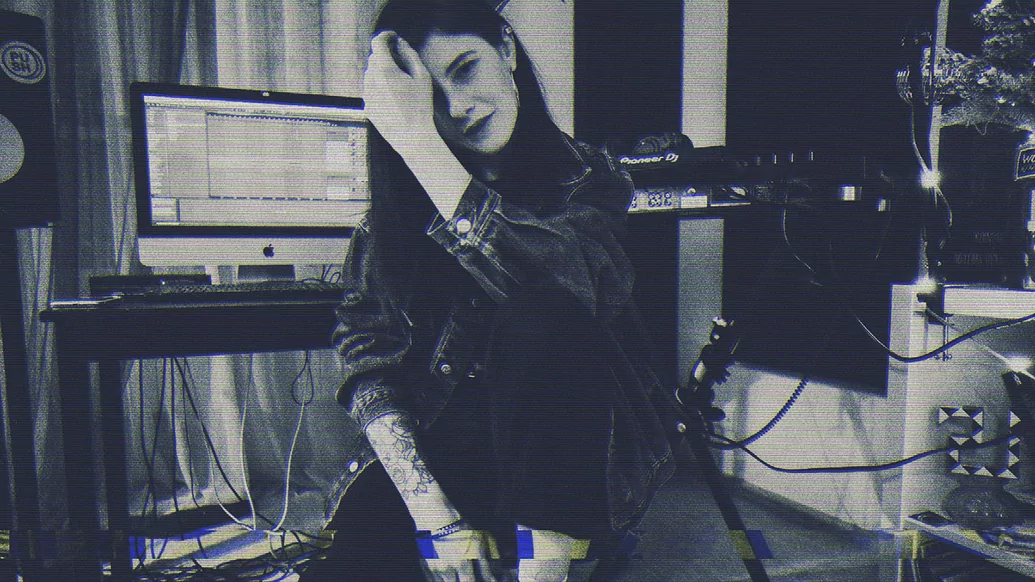
But being critical of the Russian government has made Anna think about her safety. “It’s not necessarily that they will come for me, but there’s always a thought — ‘what if?’ It’s a very strange feeling, like you’re not really you. You have to pretend something to stay safe,” she explains. “It drives me crazy sometimes, that I might have to be afraid of my own thoughts and words.”
In response to whether she’s considering leaving Russia, she says: “It’s not a solution to just move away and forget. We should do something. It's good to do whatever you can to make the situation better. But also, it's different for everyone personally. People have to weigh all the risks carefully."
“If I leave the country, I will do that for my music career,” she adds, “but I will not forget where I'm coming from and will still try to spread the word about problems that people have here with their human rights.”
When it comes to the music scene, Anna is also focused on amplifying others’ voices. Her club night and blog Get High On Bass showcases emerging talent in Russia, with special GRL PWR editions of the party celebrating women in the scene. “I didn’t have many women to look up to starting out, so I really wanted to be that example for someone else,” she says of the events, which she started in 2018. Anna recounts how, for many of the female DJs she spotlights, Get High On Bass will be the first party they play, or the first time they record a mix. Often they’ll go on to be booked by other promoters. “When they come up to me and say, ‘Thank you, you started my career’, it’s not only amazing to hear,” she says, “but makes me feel like the things I do are important.”
Listen to A.Fruit's Recognise mix, comprised of 100% her own productions, below.
Tracklist:
A.Fruit ‘Measures Of Dispersion’ [Forthcoming - YUKU]
A.Fruit feat. D.E ‘Gonman’ [Rua Sound]
A.Fruit ‘Please Arrive’ [Med School]
Catnapp ‘Fight For a Fight (A.Fruit Remix)’ [Monkeytown Records]
A.Fruit ‘Music Lasts Forever’ [Med School]
A.Fruit ‘This Moment’ [Sequel One Records]
A.Fruit ‘Deep Insight’ [Cosmic Bridge]
A.Fruit ‘Wars’ [Sequel One Records’
Machinedrum ‘Take Flight (A.Fruit Remix)’ [Self-released]
A.Fruit ‘Send Me a Message’ [Sequel One Records]
A.Fruit ‘Days’ [Hyperboloid Records]
Mel G & Nikes ‘Bounce (A.Fruit Remix)’ [Black Marble Collective]
Husky ‘Мармелад (A.Fruit Remix)’ [Hyperboloid Records]
A.Fruit ‘Obsession’ [Med School]
A.Fruit ‘Polykarp’ [Cosmic Bridge]
A.Fruit ‘2036’ [Forthcoming - YUKU]
A.Fruit ‘Terrorise’ [Worst Behavior Recs]
A.Fruit ‘Make Them Shake’ [Cosmic Bridge]
A.Fruit ‘Incredible’ [Forthcoming - YUKU]
A.Fruit ‘Echinoidea’ [Hospital Records]
A.Fruit ‘Promises’ [Hyperboloid Records]
A.Fruit ‘Your Inner Sun’ [Hyperboloid Records]
A.Fruit ‘Secret Trick’ [Med School]

